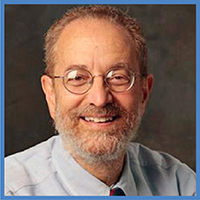 |
Howard Frumkin, MD DrPH Dr. Howard Frumkin is Professor Emeritus of Environmental and Occupational Health Sciences at the University of Washington, where he was Dean of the School of Public Health from 2010 to 2016. From 2018 to 2019 he headed the Our Planet, Our Health initiative at the Wellcome Trust in London, and from 2010-2015 he directed the National Center for Environmental Health and Agency for Toxic Substances and Disease Registry (NCEH/ATSDR) at the U.S Centers for Disease Control and Prevention. Dr. Frumkin’s research interests include public health aspects of climate change, the built environment, energy policy, nature contact, and sustainability. His community and professional activities have included serving on numerous National Academies of Sciences committees, on the Boards of the Bullitt Foundation, the U.S. Green Building Council, Physicians for Social Responsibility, the Association of Occupational and Environmental Clinics, and the American Public Health Association, among others. His books include Urban Sprawl and Public Health (2004); Environmental Health: From Global to Local (2005, 2010, and 2016), Safe and Healthy School Environments (2006), Green Healthcare Institutions: Health, Environment, Economics (2007), Making Healthy Places: Designing and Building for Health, Well-Being, and Sustainability (2011), and Planetary Health: Protecting Nature to Protect Ourselves (2020). |
 |
Kari Nadeau, MD, PhD Dr. Nadeau practices Allergy, Asthma, Immunology in children and adults. She has published over 400+ papers, many in the field of climate change and health. Dr. Nadeau, with a team of individuals and patients and families, has been able to help major progress and impact in the clinical fields of immunology, infection, asthma and allergy. Dr. Nadeau is a member of the National Academy of Medicine and the U.S. EPA Children’s Health Protection Committee. For more than 30 years, she has devoted herself to understanding how environmental and genetic factors affect the risk of developing allergies and asthma, especially wildfire-induced air pollution. Her laboratory has been studying air pollution and wildfire effects on children and adults, including wildland firefighters. Many of the health issues involving individuals and the public are increasing because of global warming, sustainability practices, and extreme weather conditions. She oversees a team working on air pollution and wildfire research along with a multidisciplinary group of community leaders, firefighters, engineers, scientists, lawyers, and policy makers. Dr. Nadeau was appointed as a member of the U.S. Federal Wildfire Commission in 2022. Dr. Nadeau works with other organizations and institutes across the world. She is working with the WHO on a scoping review and report for health ministers and policy makers on wildland fires: how to mitigate, adapt, and follow UN SDG’s to create resiliency and co-benefits in communities, especially LMICs. She also launched four biotech companies, and founded the Climate Change and Health Equity Task Force and started the Sustainability Health Seed Grant initiative and Climate Change and Health Fellowship program at Stanford. She also developed climate change and health courses at Stanford. She also has served on the Scientific Advisory Board of the U.S. EPA. Dr. Nadeau earned her BS from Haverford College, and her MD/PhD from Harvard Medical School in 1995, completing her doctoral work in biochemistry and immunology, followed by a pediatric internship and residency at Boston Children’s Hospital (1995-1997). She moved to California for residency and fellowship in the Stanford-UCSF Allergy, Asthma, and Immunology Program (2003-2006), joining the Stanford Medical School faculty as an instructor, followed by promotions to assistant professor (2008), associate professor (2011), and professor (2015). |
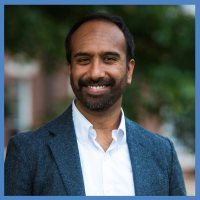 |
Gaurab Basu, MD MPH Gaurab Basu, MD, MPH is a primary care physician and Director of Education and Policy at the Center for Climate, Health, and the Global Environment (Harvard Chan C-CHANGE) at Harvard T.H. Chan School of Public Health. He is an Instructor at Harvard Medical School (HMS). His work focuses on the intersection of climate change, global health equity, human rights, medical education, and public policy. Dr. Basu has developed and evaluated numerous innovative health equity curricular programs. He is the director of the HMS Climate Change and Health curricular theme, co-founded the CHA Center for Health Equity Education and Advocacy, co-directed the HMS social medicine curriculum, and co-directs the Climate Health Organizing Fellowship. He serves on the education committee of the Salata Institute for Climate and Sustainability at Harvard University. Dr. Basu has received the inaugural HMS Equity, Social Justice and Advocacy Faculty Award and the HMS Charles McCabe Faculty Prize in Excellence. He has been a HMS Curtis Prout Academy Fellow and a Harvard Macy Scholar. In 2021, Dr. Basu was named to the Grist 50 list of national climate leaders. In 2018, The Robert Wood Johnson Foundation named him a “Culture of Health Leader.” He serves on the Implementation Advisory Committee in the Massachusetts Governor’s Executive Office of Energy and Environmental Affairs. He was a part of the city of Cambridge Mayor’s Climate Crisis Working Group and its Net-Zero Climate Task Force. Dr. Basu previously worked for numerous global NGOs including the Gates Institute, Partners in Health, the Child in Need Institute and Last Mile Health. He is on the board of directors of Physicians for Social Responsibility and the Weather Channel’s climate program “Pattrn,” and on the advisory council of the Environmental League of Massachusetts. He served as one of the clinical leads of Cambridge Health Alliance’s COVID Community Management clinical services during the pandemic. |
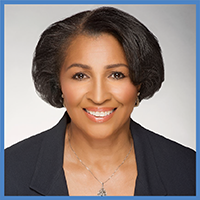 |
Doris Browne, MD MPH Dr. Doris Browne is the 118th President of the National Medical Association and President/CEO, Browne and Associates, LLC, a health consulting company that addresses national and global health inequities. As President of the NMA, she focused on a Collaborative Approach to Health Equity entitled “The Urgency of Now: Creating a Culture for Health Equity”. She tirelessly champions causes that significantly contribute to improving the health status of vulnerable populations. She achieved national and international recognition as an expert educator and speaker and has been either featured or quoted in many news articles and Op-Eds. She specializes in and is passionate about women’s health, cancer, environmental justice, sickle cell disease, HIV/AIDS, and radiation casualties. She is a retired Colonel from the U. S. Army, Medical Corps and retired from NIH, National Cancer Institute where she managed the breast cancer portfolio. Dr. Browne is a graduate of Tougaloo College (BS), UCLA (MPH), and Georgetown University (MD). She is a Medical Oncologist and a member of numerous organizations. She received plentiful awards including the NIH Merit Award and Top Blacks in Healthcare Award. |
 |
Alice T. Chen, MD Co-chair of the Board of Directors of Health Care Without Harm Alice T. Chen is a mom, a practicing internal medicine physician, and a national leader in public health, physician advocacy, and community organizing. She serves as the co-chair of the Board of Directors of Health Care Without Harm. From 2009 to 2017, she served as a founding board member and Executive Director of Doctors for America, a grassroots organization of thousands of physicians and medical students in all 50 states who advocate for policies to improve the lives of their patients, including bringing physician support to the passage of the Affordable Care Act. In 2021-2022, she was a Senior Advisor for Made to Save, a national COVID-19 vaccine outreach and equity campaign that worked with more than 1600 partner organizations and 110 community-based grantees in communities of color. She also served as a Hauser Visiting Leader at the Harvard Kennedy School Center for Public Leadership. Dr. Chen currently serves on boards and advises several organizations focused on climate change, public health, digital health information, and public policy and graduate education. She also practices primary care at Mary’s Center, a federally qualified health center in DC. She completed her internal medicine residency at UCLA, received her MD from Weill Cornell Medical College, and her BS from Yale University. |
 |
Michael Coburn Michael Coburn is Executive Vice President and Chief Operating Office of Research!America, the nation’s largest not-for-profit public education and advocacy alliance, committed to making research to improve health a higher national priority. He previously served as Chief Operating Officer of The Arc of the United States, President and CEO of the Tuberous Sclerosis Alliance, and in management and leadership roles with a number of national nonprofit organizations. |
 |
William D. Novelli, MA Bill Novelli is a professor at the McDonough School of Business at Georgetown University where he teaches in the MBA program and also founded and oversees the Georgetown Business for Impact initiative. He is co-chair of the Coalition to Transform Advanced Care (C-TAC), a national alliance to reform advanced illness/end of life care in the U.S. Previously, he was CEO of AARP, founder and president of the Campaign for Tobacco-Free Kids, EVP of CARE and president of Porter Novelli, the global public relations agency. He began his career at Unilever and also was Director of Advertising & Creative Services at the Peace Corps. Bill serves on a number of boards and committees. He holds a B.A. and M.A. from the University of Pennsylvania. |
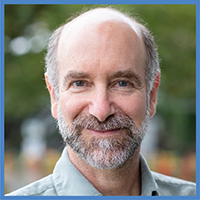 |
Jonathan Patz, MD MPH Dr. Jonathan Patz is Professor & John P. Holton Chair of Health and the Environment, and he directs the Global Health Institute at the University of Wisconsin-Madison. His faculty appointments are in the Nelson Institute for Environmental Studies and the Department of Population Health Sciences. Dr. Patz co-chaired the health report for the first Congressionally mandated US National Assessment on Climate Change and for 15 years, served as a lead author for the United Nations Intergovernmental Panel on Climate Change (IPCC) – the organization that shared the 2007 Nobel Peace Prize. Some of his other awards include: Aldo Leopold Leadership Fellows Award; shared Zayed International Prize for the Environment; Fulbright Scholarship; American Public Health Association’s Homer Calver Award for environmental health leadership; Case Western School of Medicine Alumni Special Recognition award; Chanchlani Global Health Research Award; elected member of the National Academy of Medicine. Professor Patz has taught and conducted research on the health effects of climate change for more than 20 years and has published over 100 peer-reviewed studies and several textbooks on the subject. |
 |
Mona Sarfaty, MD MPH Founder and Emeritus Executive Director of the Medical Society Consortium on Climate and Health Dr. Mona Sarfaty is the Founder and Emeritus Executive Director of the Medical Society Consortium on Climate and Health. She is trained in family medicine and public health and has engaged in teaching, research, and advocacy for 40 years. As an academic faculty member with expertise in primary care, preventive services, and health policy, she has lectured at national and regional venues including hospitals, health plans, professional societies, health departments, and government conferences. In the middle of her career, she worked as a Senior Health Policy Advisor for the U.S. Senate Health and Human Resources Committee (now H.E.L.P.) for 7 years where she planned hearings, wrote legislation, negotiated policy, met with constituents, and founded the Foundation for the NIH. Subsequently, she founded the Community Oriented Primary Care Track at the George Washington School of Public Health (Milken Institute School), Project Access and the Primary Care Coalition of Montgomery County, MD, and the Diabetes Information and Support for Your Health group visit program at Thomas Jefferson University. She is the author of widely circulated guides and publications, including many peer-reviewed articles, two book chapters, and a text called Climate Change and Population Health published by JB Learning in 2020. She founded the Consortium after assessing physician experience with the health effects of climate change in cooperation with the George Mason University Center for Climate Communication. She received her MD from the State University of New York at Stony Brook, her MPH from George Washington University, and her BA from Harvard University. |
|
|
|
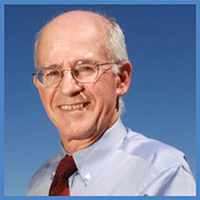 |
Steven Schroeder, MD Dr. Steven Schroeder is Distinguished Professor of Health and Health Care, Division of General Internal Medicine, Department of Medicine, UCSF, where he also heads the Smoking Cessation Leadership Center. The Center, funded by the Robert Wood Johnson Foundation and the Truth Initiative, works with leaders of more than 80 American health professional organizations and health care institutions to increase the cessation rate for smokers. Between 1990 and 2002, Dr. Schroeder was President and CEO of the Robert Wood Johnson Foundation. Dr. Schroeder graduated with honors from Stanford University and Harvard Medical School, and trained in internal medicine at the Harvard Medical Service of Boston City Hospital and in epidemiology as an EIS Officer of the CDC. He held faculty appointments at Harvard, George Washington, and UCSF. At both George Washington and UCSF he was the founding medical director of a university-sponsored HMO, and at UCSF he founded its division of general internal medicine. He is a director of, the Marin General Hospital, the Marin Community Foundation, Mathematica Policy Research, and the Robina Foundation, and former member of the editorial board of the New England Journal of Medicine (for 19 years) and former chair of the Health Care Services Board of the Institute of Medicine (now National Academy of Medicine). He formerly chaired the American Legacy Foundation (now Truth Initiative), was a Council member of the Institute of Medicine, an Overseer of Harvard, President, the Harvard Medical Alumni Association, and director of the James Irvine Foundation. In 2014 he was named a public member of the Congressionally-mandated federal Interagency Committee on Smoking and Health. He has won numerous awards, including six honorary doctoral degrees and the Gustav O. Leinhard Award from the National Academy of Medicine. |
|
|
|
 |
Reed V. Tuckson, MD, FACP Reed V. Tuckson, MD, FACP, is Managing Director of Tuckson Health Connections, LLC, a vehicle to advance initiatives that support optimal health and wellbeing through the intersection of health promotion and disease prevention; applied data and analytics; enhanced quality and efficiency in care delivery; and the application of telehealth and biotech innovations. Currently, Dr. Tuckson’s focus is on advancing his work as a co-founder of the Black Coalition Against COVID, a multi-stakeholder and interdisciplinary effort working to mitigate the COVID-19 pandemic in Washington,D.C. and nationally. Previously, he enjoyed a long tenure as Executive Vice President and Chief of Medical Affairs for UnitedHealth Group, a Fortune 20 Health and wellbeing company. A recognized leader in his field, Dr. Tuckson is honored to have been appointed to leadership roles at the National Institutes of Health; National Academy of Medicine; numerous Federal Advisory Committees; and corporate, non-profit and academic boards. He has been recognized several times by Modern Healthcare Magazine’s listing of the “50 Most Powerful Physician Executives” in healthcare. He is a graduate of Howard University, Georgetown University School of Medicine, and the Hospital of the University of Pennsylvania’s General Internal Medicine Residency and Fellowship Programs, where he was also a Robert Wood Johnson Foundation Clinical Scholar studying at the Wharton School of Business. |
